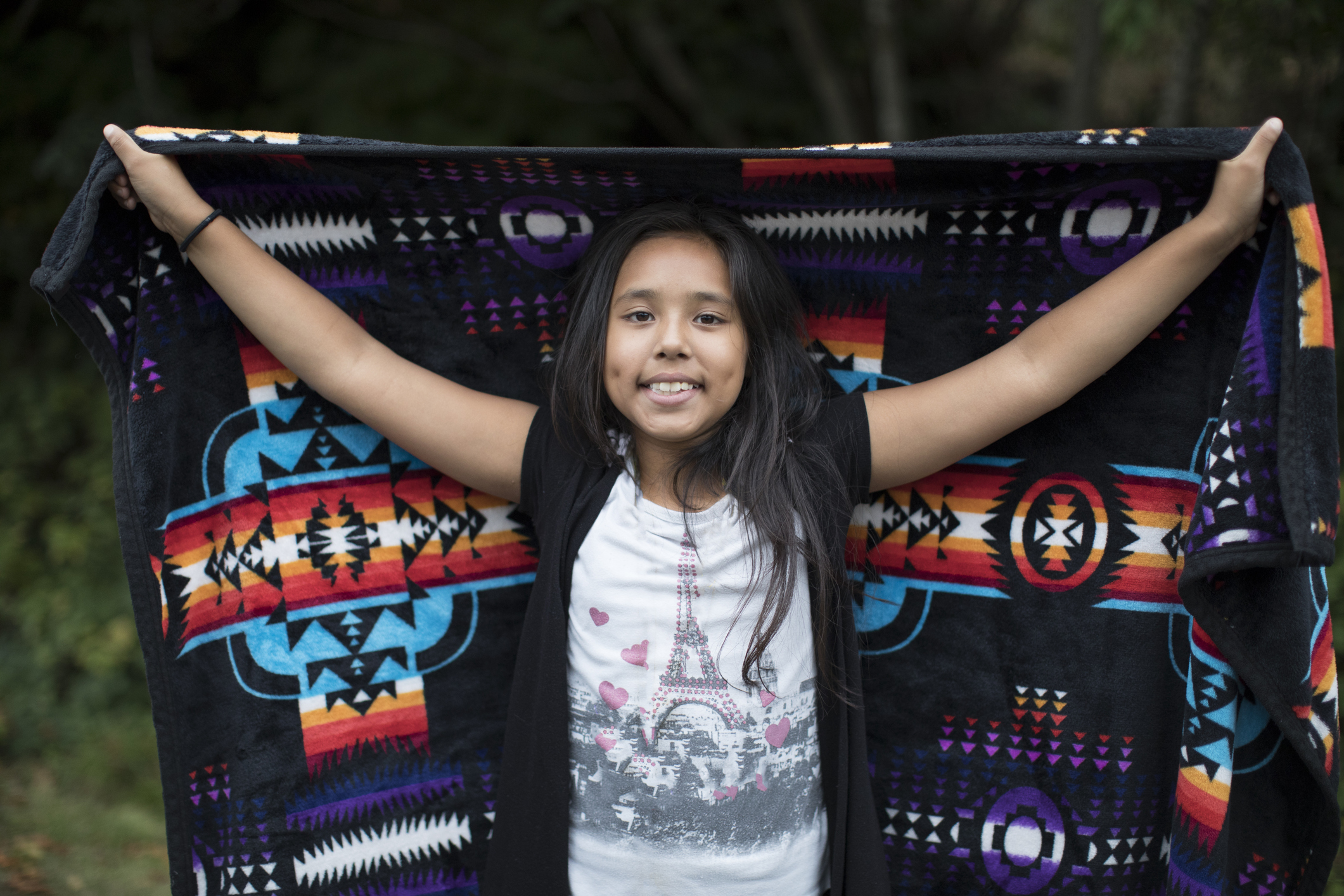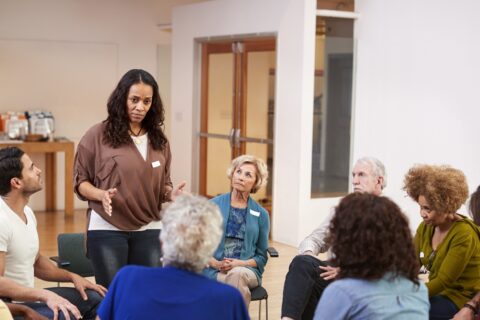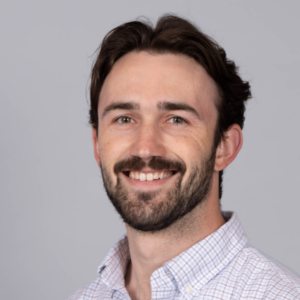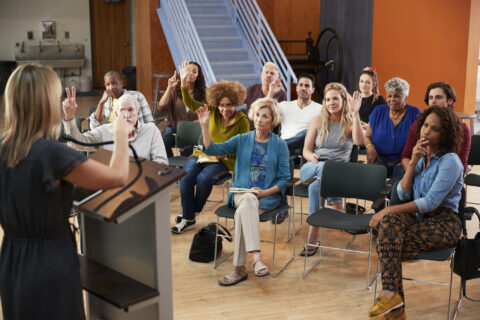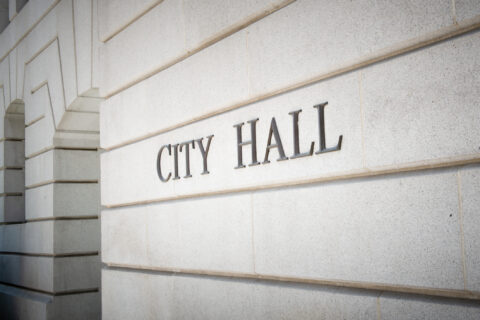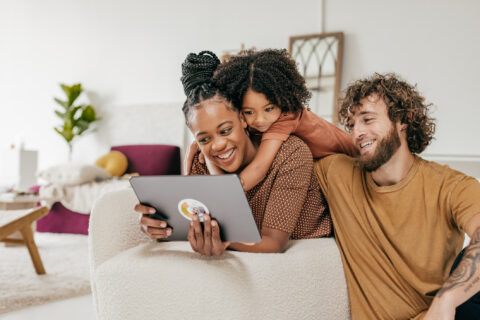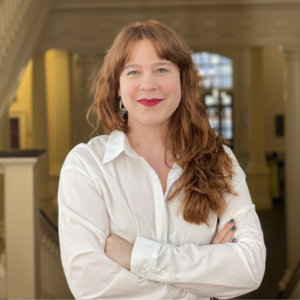Ya’at’eeh, my friends!
My name is April Fournier and I currently serve as an at-large city councilor in Portland, Maine. I am the first native woman to hold this office in the largest and most diverse city in our state. I am Dine’ (Navajo) and a member of the Honaghaani clan by my mother. I reside in Maine and have that French/Irish heritage from my father. I am able to do the work that I do for our city and in my community because I have an incredibly supportive family that includes my husband Kevin and our four children. I also have two honorary councilors, Hatch and Bella, our two dogs, as they frequently join my virtual council meetings, whether I like it or not.
I was inspired to public service at a very early age. I have always been a “helper” and determined to create fair and equal conditions. If I saw classmates struggle, I would try to help. If I saw friends going without, I would try to share what I had, and if I saw sadness, I would try to create smiles. Much of this is what was demonstrated by my mother and my father. As I got older, the simple ways of helping grew into more complex issues as I became a mom, as I learned about injustices around our state and as I could not sit on the sidelines any longer and let others make decisions for me without me.
I didn’t have the benefit of growing up with my tribe. My mother was taken from the Navajo reservation in the early 1960s when her mother was ill, and her older brother was away at boarding school. She grew up in California with white parents, who loved and cared for her and her sister, but were not the family who held the generational knowledge, tradition, and culture she should have had. My mother tried to tell us what she could, but for many years we only knew about our culture from textbooks because growing up in the ’80s and 90’s meant your knowledge came from books. There was no internet yet, and our tribe was thousands of miles away. In 1993, my mom was reunited with her birth family, a chance article in a southwest magazine that reconnected siblings decades after separation. We then moved to New Mexico to be closer to family, to experience a new culture, and to have a different life.
Though I had some time to reconnect with my family, visit the rez, and learn more about our culture, it is still so different from having the benefit of growing up in that environment. There were ceremonies I missed, language I didn’t understand, customs observed I didn’t quite get. Having the opportunity to learn all of that as a rebellious teenager is also complicated. It wasn’t until I became a mom and realized my responsibility to teach my children and that it was ok to embrace my native identity even if it wasn’t perfect.
My public service and advocacy started with my youngest child. Diagnosed with autism at age two, I was determined to be eligible for various services due to his diagnosis. As I entered these meetings, I felt completely overwhelmed, outnumbered, and outmatched. I didn’t speak the language of these professionals, and I was not sure they were doing what was best for my son. So I took control and worked to educate myself on disability policy, disability rights, state law, and local law as it relates to providing services for children with autism. I learned how to write testimony, how to speak in groups, and how to advocate for my son because I knew that no one else would.
This grew into further advocacy locally and within my state for Indigenous rights. Everything from changing native mascots, re-naming the second Monday in October to recognize Indigenous Peoples Day, and using my little voice to create more visibility for native education and issues. It still felt like it wasn’t enough, and I knew I had to take action. I learned how to run for office through attending the Emerge training program. It took a few years for the timing to be right, but I ran, and I won and became the first Indigenous woman to serve on the Portland City Council. I’m just getting ready to go into my second year, and I couldn’t be more excited and motivated to bring others along!
This advocacy didn’t only extend to the local political arena but also to the roller derby track. You heard that right, ROLLER DERBY. A predominantly white sport is struggling with its own identity and creating more diverse decolonized spaces for all athletes. Part of that work included creating the first all-Indigenous roller derby team to compete.
While my tribe is thousands of miles away, I try to serve them by using my platform to elevate the issues that connect us all. My local tribes struggle with sovereignty, visibility, and discrimination. COVID has made our connectedness much more critical but much more difficult to cultivate. I continue to try to elevate the voices in the conversation, work on my own education and build bridges to other non-native community members to enhance their understanding of what we shoulder as Indigenous community members. As an elected official, I have also been able to create proclamations to recognize native issues and bring more visibility to a population that is largely uneducated about our issues.
One of the things we recognized while organizing Team Indigenous roller derby was that so many of the players that came to us were the “only” or one of the “few” native athletes in their league or team. That is a very lonely space to be in, and it is incredibly difficult to influence change or create space for education. Creating a space that existed to grow connections, share knowledge and build strength was so important. This is no different for elected officials in communities around the country. There are native community members in every community, but by design, we were not intended to thrive and survive the attempt at assimilation by our government. And yet here we are, we’re building and growing and claiming space for future generations, so the “only” and the “few” become the “many.”
My favorite way to celebrate Native American Heritage month is to do what I do every day. Exist. Thrive. Grow. My existence is resistance from what was almost stolen from me. I have the privilege and ability to shoulder this work and have a platform to keep the work moving forward. Any time I hear “I’m so glad to see someone like me” or “I felt like I could do this because you did this,” I know the work that I do, and we do as a community, is making a difference. For me, it’s not just a month. For me, this is life, and life is good.
Learn More
Join NLC for a conversation on 11/29 @ 3PM ET with local leaders on how government affects the lives of Native people, what community issues are top of mind, and the intersectionality of serving as local elected officials and being a citizen of a First Nation
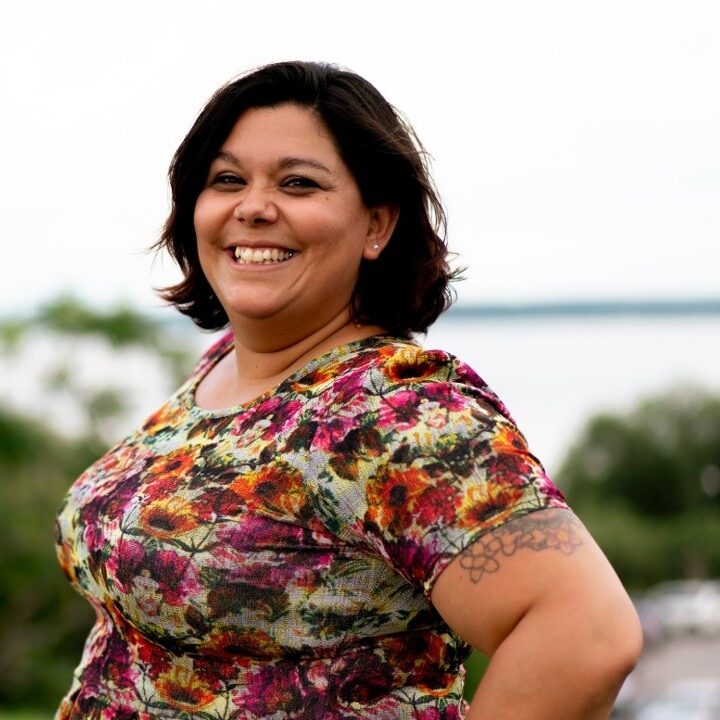
About the Author:
April Fournier is an at-large member on the Portland City Council. She is Diné of the Navajo Nation.
